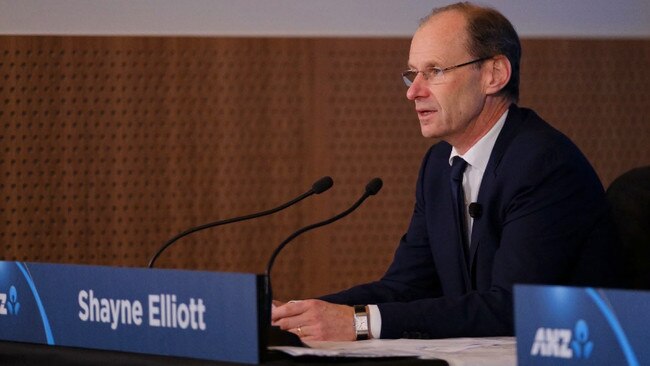Businesses adapting to geopolitics and supply-chain shifts: ANZ
ANZ chief Shayne Elliott has applauded businesses for adapting to a shifting global trade environment amid China tensions, but warned SMEs about cyber attacks.

The nation’s businesses have shown “remarkable” flexibility in opening up other markets amid trade difficulties with China and disruption to global supply chains, according to ANZ chief executive Shayne Elliott.
“Where stuff goes and where it comes from has shifted,” Mr Elliott told a trans-Tasman Business Circle webinar on Tuesday.
“The reality is that Australian and New Zealand companies have shown remarkable flexibility over recent times for all sorts of reasons, not just geopolitical but all sorts of practical reasons,’’ he said.
“So maybe there’s not as much stuff going to China as there used to be, but guess what? Nearly all of it has found a home somewhere else.”
Mr Elliott said ANZ had seen increased trade with a host of countries and regions, including Japan, India, South Korea, the US, Britain and Latin America.
Geographic diversification had occurred “really, really quickly”, which spoke volumes for the inherent resilience of the Australian and NZ economies.
The ANZ chief acknowledged that this had not occurred without stress, prompting calls for Australia to make everything locally.
“So I’m old enough to remember when we tried that, and we should go back to that good old theory of competitive advantage and think that through,” he said.
“My own view is that there’s still sufficient openness and trade opportunities globally so we don’t have to make everything ourselves; we should be more thoughtful about that and ANZ should contribute to that debate.”
Mr Elliott also warned small and medium-sized businesses that they should do a lot more to protect themselves from cyber attacks.
Australians, he said, lost $850m to scams last year – an increase of 75 per cent.
Part of the reason was that people were spending a lot more time at home and were increasingly susceptible.
Small businesses were more vulnerable than they had ever been before.
“Australian businesses are nowhere near sufficiently prepared; I would describe their preparedness as woeful, actually,” Mr Elliott said.
While bank infrastructure was resilient to attacks, the ANZ chief said the best protection against cyber attacks was commonsense.
“It’s not rocket science. Lock the door. It’s basic habits,” he said.
In reference to the increasing battle between the banks for market share in the SME sector, Mr Elliott said small business was the “new black”.
While ANZ had 500,000 SME customers, only 150,000 borrowed money.
One banker, he said, had described people running small businesses as “time-poor control freaks” because they had to do everything.
There were two fundamental reasons why some operators closed their businesses – a realisation that they were earning less than the minimum wage, or that they were not following their dream and instead were spending much of their time doing accounting and health and safety reports.



To join the conversation, please log in. Don't have an account? Register
Join the conversation, you are commenting as Logout